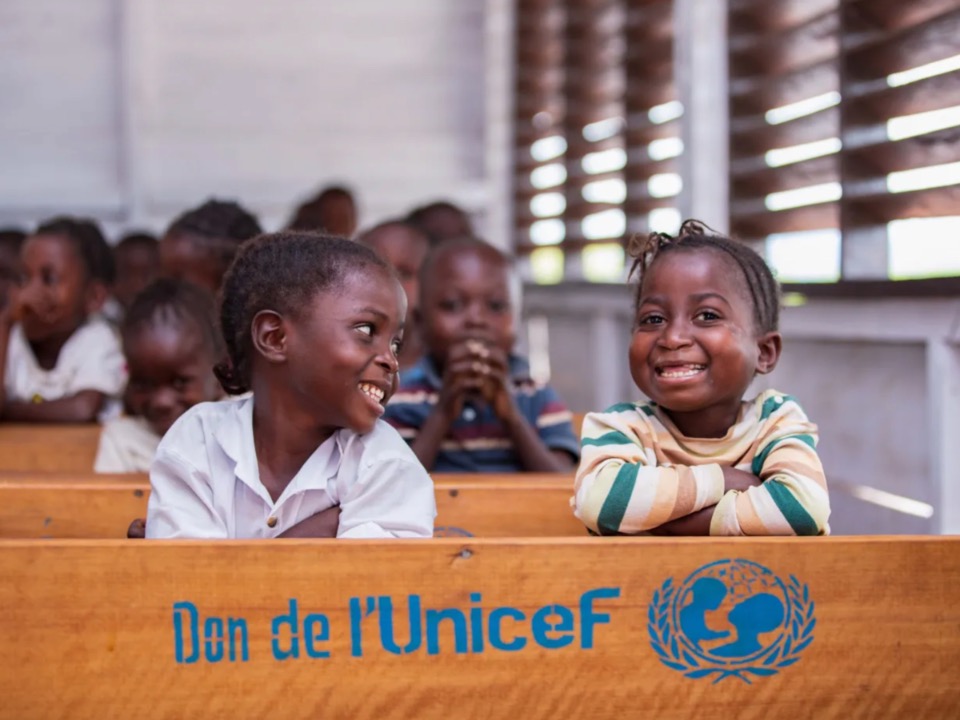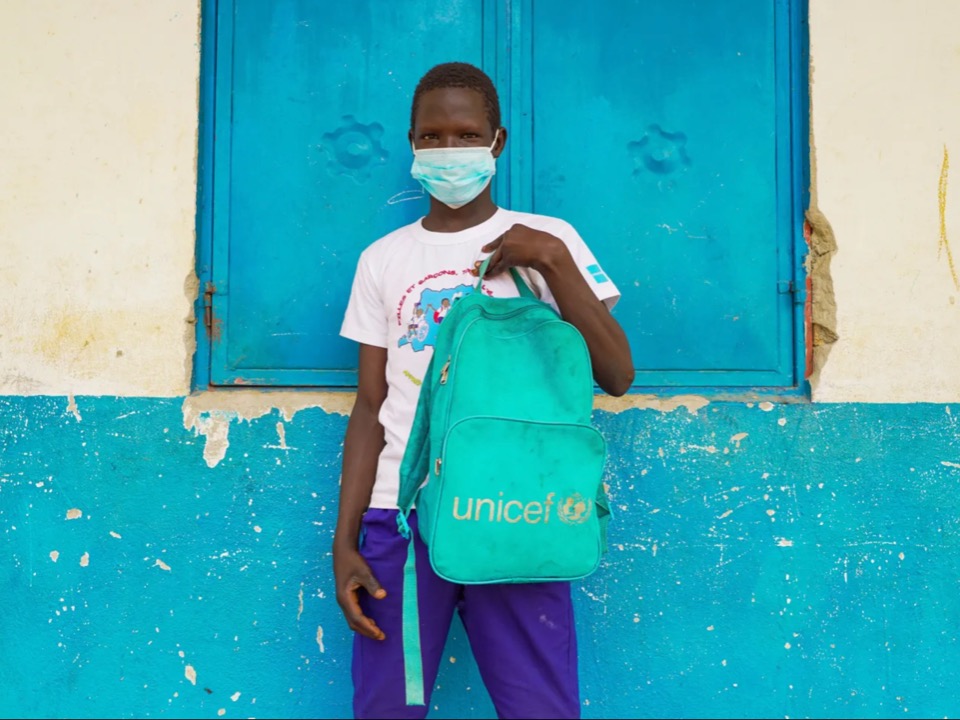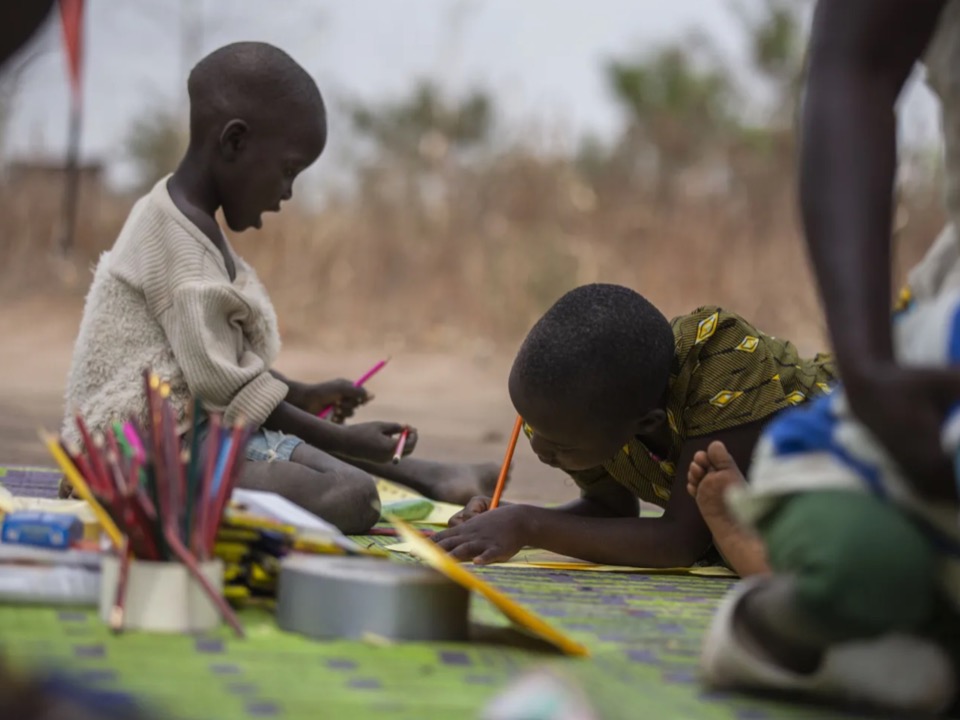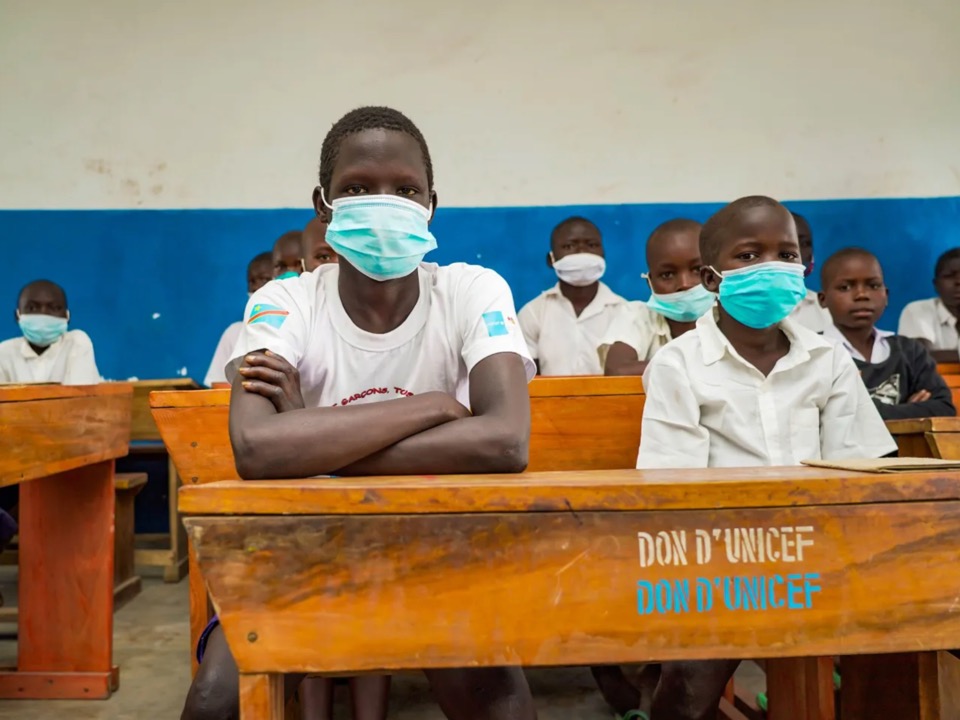
This story appears here courtesy of TheChurchNews.com. It is not for use by other media.
By Mary Richards, Church News
When Ayibu was 6 years old, he and his parents were forced to flee their home in South Sudan with nothing but the clothes on their backs.
Now 12, Ayibu recalls what it was like. “I remember the rebels entering people’s houses and killing them without mercy,” he said.
His family found refuge in Biringi, Democratic Republic of Congo — becoming part of more than 7,000 refugees in Biringi since 2016. Ayibu entered the school system needing to learn a different language and traumatized by what had happened.
The United Nations Children’s Fund, known as UNICEF, with funding and support from The Church of Jesus Christ of Latter-day Saints, has been building early childhood development classrooms and training teachers in several countries on how to help refugee children like Ayibu.
UNICEF’s Learning for Life program emphasizes psychosocial care, conflict management and facilitating the reintegration of traumatized children into schools.
“When we arrived in Biringi, I was admitted to the second year of primary school,” Ayibu said. “Thanks to the teachers and classmates, I integrated easily.”

Forgotten Crisis
UNICEF is a United Nations agency focused on supporting the well-being of children and promoting the rights of children globally, and UNICEF USA promotes that mission.
Rachel Steinberg, the managing director for global cause partnerships at UNICEF USA, works with donors, supporters and partners like the Church of Jesus Christ and other faith-based organizations.
“One of the things that we have appreciated so much about our partnership with [The Church of Jesus Christ of Latter-day Saints] is that they have come to us and said, ‘What are the forgotten crises that need attention and support?’” Steinberg said.
South Sudan is a forgotten crisis — what is happening there has not received as much attention or headlines as other countries. Yet the Democratic Republic of Congo, Kenya, Uganda and Sudan are all receiving large influxes of refugees.
As the partnership grew between the Church and UNICEF USA, Steinberg said they talked about where they could have the most impact with more investment of support and resources.
“Learning for Life was born out of that conversation,” Steinberg said. The program is now in its fifth year of serving refugee communities.

Helping Children, Parents and Teachers
Early childhood development is critical — especially from ages 0 to 5 — by creating an important foundation of education, stimulation, nutrition, family engagement and more.
“But in times of crisis that need is particularly acute,” Steinberg explained. “It’s reported that children and families prioritize access to education over any other service when they are displaced or when they are experiencing crisis. But it is also often the first service that is suspended and the last to be restored in crisis.”
Steinberg said 64% of refugees from South Sudan had not been enrolled in early childhood developments or education at any level.
But since Learning for Life began in 2018, more than 115,000 children have gained access to education. UNICEF has also trained 43,000 teachers and parents, which will continue to have a ripple effect throughout families and communities.
Taking an equitable approach reduces the strain and tension that could exist between refugees and host communities, said Steinberg. And new job opportunities have been created for teachers — both in host communities and those who return to their home communities in South Sudan.

“We are creating strengthened teacher training resources so that teachers who are already there are better equipped to deal with the psychosocial trauma that children have experienced, to help with language integration and so forth,” Steinberg said.
Other resources and materials give parents and caregivers new opportunities to be more involved in supporting their children’s development at home.
“We understood that this was a huge gap and because we know that this is a big priority for [the Church], this is why we came together to support this essential service and create this healthy foundation for children,” Steinberg said.
Ayibu has now been going to school for five years in his new home in the Democratic Republic of Congo, learning to speak a new language fluently and gaining confidence in his education and in himself.
“I plan to become a doctor,” he said.
Copyright 2022 Deseret News Publishing Company.